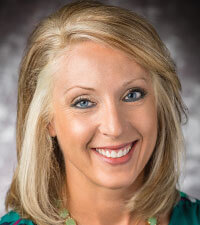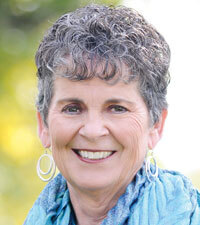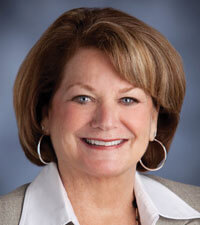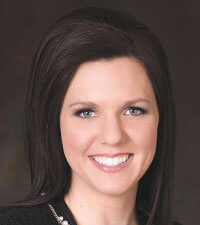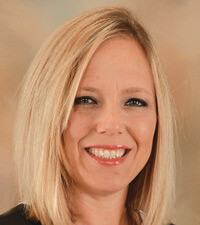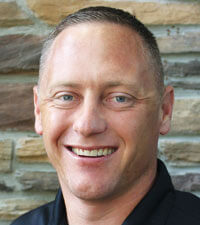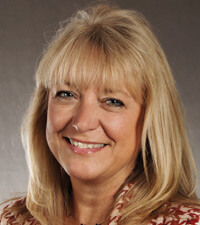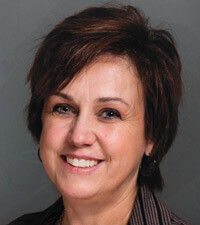Senior Living in Lincoln, NE – 2018
We’ve all heard the saying “age is just a number.” For each number past 65, the age that defines one’s status as a “senior,” there’s great variance as to what that looks like for each individual. Sure, everyone can count on getting to enjoy those great discounts, but other than that you could find yourself anywhere on a wide spectrum. As life expectancies continue to rise, aging as gracefully as Jane Fonda or Warren Buffett (or Charlie Munger for that matter!) isn’t as much of an anomaly anymore. Alternatively, we are faced with serious health conditions such as the epidemic of dementia and Alzheimer’s disease diagnosis at an earlier age or the prevalence of cancer. Fortunately here in Lincoln, the resources that are available for seniors in our community are just as diverse as the population they serve.
Future Projections for the Senior Population
What You’ll Need to Know to Help You Plan Accordingly
The noticeable growth of the senior care industry is for good reason, supported by the growing need for services that meet very specific needs. With Baby Boomers entering into their senior years en masse, according to U.S. Census Bureau estimates there will be 83.7 million people over the age of 65 in the nation by the year 2050. In comparison, that is almost double the population of people that age in 2012.
“As Baby Boomers enter retirement in droves, the senior living industry is continually changing to meet their demands,” says Jennifer Knecht with Immanuel. “The change is a good thing – providing more choices for seniors. The options are vast for senior living and with these additional choices comes complexity and confusion for seniors.
The best first step is to start the planning process early. Do your parents have plans or goals for their retirement? Are they currently meeting those goals? Start the conversation early. If you’re not sure how, or need help sorting through the array of senior health and lifestyle choices, reach out to the experts. Immanuel’s senior living consultants have been there, helping families for decades sort through the confusion and develop a plan. So when the time is right, there’s a plan. No crisis, no panic, just a plan.
Still, it’s never easy when you notice Mom or Dad may need additional help. And most people aren’t sure what to do about it – it’s not the kind of decisions you make often in your life, and no one is prepared for it. The issues you notice aren’t going to go away; in fact, they’re probably only going to worsen. Talk to your loved one about your concerns. Then, reach out to the experts. Being open to additional help is only the tip of the iceberg—health concerns, emotional aspects, and logistics can all be overwhelming. At Immanuel, our senior living consultants are the experts. They’ve helped thousands of families create plans. Sometimes the answer is a move, yet sometimes other resources are the right choice. Whether it’s with us or with someone else, we’ll help you create a plan that fits your unique family and situation. That’s our non-profit, Christ-centered mission, helping families is our first priority.
If you’re thinking a move could be right, you’ll want to explore all the options, make sure every box is checked. There’s no better way to do that than touring senior communities. Spring is a great time to get out there and explore the options. If you need help knowing what questions to ask, download Immanuel’s Non-Profit vs. For-Profit Comparison Guide at ImmanuelDifference.org. It contains all the tough questions you want to ask on a tour.
We’re coming up on an ideal time for rightsizing too, which is the process of ensuring your loved one’s home is meeting their goals for retirement. Spring is also a great time to assess whether the home is working towards the goals for the future or against them. Was snow removal difficult this winter? Does the furnace have another year? Have household chores become more difficult? What yard maintenance is needed this spring and summer and do they even want to do it anymore? Answering these questions can be great conversation starters with aging loved ones. The answers may signal additional support is needed, or perhaps a move.
For many families, making a move to senior living is tough. It’s complex, there are emotions involved, it’s a decision people often put off until an injury or health crisis occurs. But, for many of the families who make the move, they tell us they wish they had made the decision sooner. Mom’s happier, Dad doesn’t have to deal with snow or ice removal, they both have found meaningful social connections and are more fulfilled—and healthier—than they ever were on their own.
There are a lot of misconceptions about senior living; that it’s only for the old, the frail. But senior living today has changed. We’ve seen a huge response from younger retirees looking for a change – excited to move to a place where there’s no maintenance, where there are wellness and social opportunities, a place where they can accomplish their retirement goals. For these families, there’s no better time to explore senior living.”
Look no further than Lincoln for evidence of the impact that the dramatic growth of the senior population already made, as there will be a number of new facilities opening in 2018, following the same trend that was evident in 2017 and the years prior.
“Lincoln will have several new communities opening in 2018,” says Mary Ann Stallings with Bridge to Better Living. “Independent, Assisted and Memory Assisted Care will be offered in various continuum settings. Seniors and their families will be able to broaden their choices for a transition to Senior Living with several hundred additional apartments available. The Baby Boomers have asked for more amenities, and residents will see new additions such as Bistros, fitness centers, chapels, new technology, theaters and restaurant style dining. Bridge to Better Living already has toured or visited with the new communities and is able to share available information with clients about the possibility of viewing floor plans, touring after construction is finished, choosing an apartment and moving as the communities open their doors. BBL has been working with clients and current communities since 2010 and looks forward to growing the options for Senior Living.”
Stallings explains how one would benefit from utilizing the services offered by a senior placement agency, stating, “Seniors and families often begin their own search for Senior Living options by using questions they have read on the internet or heard from others. When they realize the difficulty and stress associated with the navigation of retirement communities and then connect with Bridge to Better Living, they often wonder why they didn’t start with BBL. It is important for us to know our clients’ needs and history to have their journey be stress-free. Bridge to Better Living has the knowledge, contacts and resources needed for a successful research resulting in quality of life. Why would anyone want to have the confusion, anxiety and exhaustion of touring several communities in a limited time, with budget constraints or a non-understanding of professional terms used, when an expert could do everything at NO COST to the client?”
Other seasonal changes impact seniors, Stallings advises. “Families must first realize who the key player is in this journey and recognize their needs. Visit with them, their therapists, physicians, neighbors and clergy. Will this be a short-term change or a lifestyle transition? If needing to move to an Independent, Assisted, Memory Care Assisted or Skilled Care community, contact a Transition Consultant such as those at Bridge to Better Living. BBL’s consultants listen and work with families to identify available resources to help in each situation. No two families or loved ones are the same and no two communities are identical. We address those differences for a successful transition and quality of life.”
As for other things that will likely impact seniors, Stallings advises, “Social engagement is important all year round and in all types of weather. Remain active and in contact with friends and family. Transportation is sometimes risky during the winter and others may provide transportation for you to events or group activities. Winter is a wonderful time to look into the contents of closets and cabinets to see what needs to be discarded, donated, given to family and friends or sold. If you are thinking about moving to a community, consider only what is needed. If receiving 2-3 meals a day is there a reason to keep multiple sets of dishes and cookware? Will you need an ironing board? A vacuum? Washer and dryer? Moving means changes and now is the time to identify the possessions you value. You may be surprised at how little is needed to be happy. Bridge to Better Living has resources to assist you reorganize, downsize or pre-stage and move to your new apartment.”
Barb Tyler with The Woodlands at Hillcrest also touches on a few things to anticipate in the coming year and beyond, particularly as it applies to planning for a move to a senior living community. She states, “2018 will have many positive things going for it, namely more choices in senior care as well as senior living. The demographics support the building of new senior living communities, so the need for senior care continues to rise as well.
Having said that, though, financial planning is often the number one factor influencing the decision to move. Those who have pre-planned for a rainy day are certainly sitting more comfortably than those who didn’t. However, planning for retirement/golden years has changed somewhat in that people are living longer than what was expected. As such, some of the original planning should be updated to reflect today’s cost of living increase for expenses. While you may have plans in place, reviewing them periodically is wise to avoid anything that could set you back. Looking into long-term care insurance is also advised.”
With the growing number of options for senior communities and services, there will be a wider range of offerings. Budget is a big factor, but there are other important things to evaluate as well. Tyler advises, “When families inquire for any type of move, they should become aware of what is offered to their loved one. Two-person assistance, housing and care up to end of life, and diet accommodations are several things that The Woodlands will offer, but not every community has the staffing to do this. An assisted living community that can provide these services can save families a lot of money by not having to transition into a skilled care facility. If you have the luxury of planning for a move, as opposed to having to move quickly, take time to do the homework to know what is out there in the way of resources.”
Again, when preparing for a move, downsizing can be a major undertaking. As such, it’s important to do it in phases over time as opposed to all at once. Tyler explains, “As previously mentioned, another aspect of preparing to move is downsizing, which may be the one thing that the entire family can help that person do to make things easier. Talking about what a particular item means to them, and offering to keep it for that person so it will stay in the family if his/her new home will not accommodate the treasure, relieves much of the worry associated with parting with items that hold sentimental value. Getting the person to focus on where he/she really lives in the home, which is often the sitting area, bedroom, and perhaps a kitchen area, will help them realize those extra bedrooms and basement storage are not really needed anymore. Having the person who will be moving be a part of the process is generally advised but does depend on the individual. They may want to be included in any decision that will affect them or they may not.
Seniors, as they downsize, may have a particular cause that they like to support, such as Habitat for Humanity or Friendship Home. By donating some of their treasures to a cause, they know they are helping others and the items are not being thrown away. Also, inquire at our local museums; perhaps they would be interested in acquiring certain items and the entire community could enjoy visiting these treasures! But just starting a conversation with family members about certain items and explaining the items’ historical, emotional, and/or traditional value raises the awareness of the item and why it is treasured. It can put an entirely new perspective on the item and it will become treasured by its new caretaker!”
She concludes, “There are many choices out there for seniors, whether it be home health care or a move to a community that will keep them engaged socially and mentally. If a family does not have the resources for a full-time move to a senior community, consider a day service within a community so that a loved one can participate in activities and meals with other seniors. Assisting seniors to stay active keeps them engaged, whether it be as simple as working puzzles and timing themselves as they complete it, to taking a class or a day trip especially for seniors. Anything to look forward to and stay socially connected will lead to better quality of life and health outcomes. Socialization should not be overlooked, as isolation can lead to depression and cause other problems. Seniors need to continue living a meaningful life!”
The Benefits of Proactive Health Assessment and Care
Good Health is the Key to Quality of Life for Seniors
Health issues are often behind increased isolation, resulting in depression. When left unaddressed, conditions that could be easily treatable or corrected gradually worsen over time. What started out as a minor issue can snowball into a much larger problem before you know it. An example of this that’s all too common with seniors is hearing loss.
Leslie Frank with Nebraska Hearing Center offers the following advice:
“For those who have noticed signs of hearing loss themselves or with their loved ones we recommend you address the problem as soon as possible. Unaddressed hearing loss is frequently associated with other physical, emotional, and mental health conditions. It can lead to cognitive decline, social withdrawal, depression, anxiety, and can be very frustrating. Hearing loss can affect the quality of life more than you may know. These effects can be reversible with the help of hearing aids. Hearing aids can greatly enhance communication skills. At Nebraska Hearing Center, our hearing evaluations are free so you have nothing to lose! It is always nice to know for certain what kind of loss you are dealing with or even to get a baseline for future reference. Many people still have reservations about using hearing aids. Hearing aids are far more versatile than ever before. They are now made with the ability to work with smartphones, televisions, and sound systems. Hearing aids are not a one type fits all and that is why it is so important to have an evaluation to find out what is right for each individuals hearing loss. There are certain hearing aids recommended for different lifestyles. At Nebraska Hearing Center we take pride in getting to know each of our clients to best fit them with the perfect aid and then following up to make sure they are completely satisfied with the fit and sound. We have locations in Lincoln, Beatrice, and Seward. Call us today at (402) 486-3737 for your complimentary hearing evaluation.”
Admittedly, with busy schedules and so much going on in our personal lives, we aren’t able to check up on our senior loved ones as much as we wish we could. Enlisting the help of a caregiver for the times when you know you can’t be there to help out is a great option to consider. These professionals are also able to alert you of any issues they notice in their time spent with your loved one, such as decline in health, things that are out of place around the house, etc.
In-home care has become another popular resource in the community, allowing seniors who are able to remain living in their homes longer. There is diversity within the companies locally as well, with services ranging from non-medical assistance with housecleaning, meal preparation, pet care, errands and transportation, companionship etc. to providing medical care that’s needed on a regular basis. That being the case, you’ll want to look into what is offered to be sure it matches your specific needs. As time goes on, these needs will change, and you’ll need to make adjustments accordingly. Communication between all parties involved will help you react in a timely manner.
Natalie Leon with Visiting Angels offers the following advice on when to adjust your loved one’s home care services:
“Picture the following scenario…An elderly loved one in your life is starting to struggle with living on his/her own. You are asked to help hire a home care service. You choose a trustworthy care company, find a great care provider, and create a service plan that works perfectly for your loved one. Suddenly, your loved one’s comfort, happiness, and quality of life have improved. Fantastic! But then fast forward a year. Even though your loved one’s home care services are still in place, your loved one seems to be struggling again. What happened? Simply put, a lot can change in a year. In the span of a few months, an elderly person can start having new, unforeseen difficulties. Because of this, it’s important to evaluate your loved one’s home care services regularly, and update those services if need be.
It is a good idea to plan ahead when it comes to evaluating home care services. For instance, you might plan to have an in-depth talk with your loved one and their caregiver every six months. For some seniors—such as those suffering from Alzheimer’s— more frequent conversations may be better.
Some of the questions you’ll want to touch on when evaluating your loved one’s home care services include:
- Have you, your loved one, or your loved one’s caregiver noticed any recent changes in your loved one’s overall wellbeing?
- Is your loved one suffering from any added difficulties in terms of strength or mobility?
- Does your loved one feel comfortable (or as comfortable as possible)?
- Is your loved one’s current home care services schedule meeting his or her needs?
- Are there additional areas that your loved one’s home care plan could help with?
The good news is that a qualified caregiver will likely be able to spot these issues as they arise. At Visiting Angels, our caregivers often observe changes that they bring to the attention of their clients and their families.”
Specialized Care wand Increased Options Making a Big Difference
Finding The Right Fit is Worth the Time and Effort
In general, with more specialized services becoming available, there are more people out there who are able to benefit from them. We’re seeing senior care diversifying based on meeting specific needs at different stages of life and in response to health epidemics. This is not only evidenced by more options for in-home care, independent living, and assisted living but also for specialized memory care. As we continue to learn more about dementia and Alzheimer’s, everything from approaches to caring for those who are suffering from any of these conditions to the living environment has been modified accordingly. Coupled with the growing population affected, now there are entire facilities and wings dedicated to memory care.
“There has definitely been a shift in the age of individuals who are seeking memory care for their loved ones,” says Christy Merritt with The Waterford Communities. “Our experience is that we are seeing an increased number of people in their 60s and 70s asking for our services. If you or someone you love is exhibiting signs of dementia, now is the time to gain an understanding of what resources are available and decide who you’ll assign to help make critical decisions in the future. Things tend to progress quickly and families are left scrambling to make decisions.”
Similarly, she also notes, “Many families wish they had sought out assistance for their loved ones sooner. There is a prevailing misconception regarding assisted living; although it has been around for quite some time, people, especially seniors, still think of assisted living as a nursing home. In reality, assisted living communities allow seniors to function at the level of independence they are comfortable with. Assisted living communities offer a wide variety of help that is offered on an individual basis.”
In closing, for anyone seeking guidance with finding the right level of care, service, or community, she advises, “There are a number of local groups who can help navigate through the process. This industry is all about service; don’t be afraid to call communities and home health agencies directly to get some of your initial questions answered. You may be going through this for the first time, but many in the industry see similar situations every day and can help get you pointed in the right direction.”
Reiterating that there will be new options to consider on the horizon, Theron Ahlman with CarePatrol of Nebraska advises, “In 2018 we will see a lot of changes in the Lincoln market and at CarePatrol, with the services we’re able to offer, we’re prepared to help in whatever way we can. At the present time, there will be three new independent, assisted and memory care communities that will be opening their doors in the spring/summer. With these additions, we will be gaining more choices for seniors as to which community is the best for them. CarePatrol is a free service that helps seniors and their families navigate through that process and already has information on the three opening up. With the preliminary research we’ve done on the communities, we can already tell you about offerings, costs, levels of care provided, and billing information such if private pay will be required the entire time you are in the community or if Medicaid waivers will be accepted at a certain point. We would never want a senior to have to move out of a community due to running out of money, so we make sure finances are a top priority when looking at options as well as level of care. Seniors will also start to hear more and learn more about the two new rehab-only communities that recently opened up in Lincoln, and CarePatrol can help answer questions on those as well.
He too emphasizes the importance of knowing what’s out there and taking advantage of the resources that are available. Ahlman points out, “A lot of seniors and families wish they had known about services like ours, as many have gone through the process of finding a community by themselves. We can save the family a lot of time and energy as we know the communities, eliminating the need to run around to a bunch of them trying to figure out the right fit. We also hear a lot of seniors wish they had made the move to a community many years sooner. They realize life can be much more enjoyable in a community and the socialization along with food is what they were lacking while living at home.
The smoothest transition can be made by asking questions, being pointed in the right direction, and getting connected to the right resources. Although CarePatrol specializes in finding the right community, we have vetted many different resources and help recommend the right people based on certain needs. It is more than just giving families the names of a couple of communities and leaving it at that. We truly help walk the family and senior through the process. Please feel free to call me directly at (402) 580-2116 to schedule a time to sit down and visit about your current situation and plans.”
Shift in Approach Seen Across Modern Senior Care Continuum
Rehabilitation Also Changing With the Times
So far we’ve touched on in-home care, independent living, assisted living, memory care, and placement agencies/transition consultants. Within the senior care continuum, rehabilitation is another core offering. There are some rehabilitation facilities that are post-acute or short-stay, helping patients to get well and transition back to their homes or to a community that offers the appropriate level of care moving forward. Others offer rehabilitation with the option to transition back to wherever the person calls home or to reside there short-term or long-term. Therefore, again it’s important to understand the differences between each.
“The post-acute rehabilitation landscape has changed dramatically in Lincoln over the past few months with the opening of two brand new facilities that exclusively provide rehab services,” says Jim Janicki with Hillcrest Health Services. “Compared to nursing homes that also provide short-term rehab, Hillcrest Firethorn is exclusively focused on short-term, post-acute rehab for those recovering from injury, illness or hospital stay.”
In addition to offering spacious modern private suites with private bathrooms, Hillcrest Firethorn offers the area’s only made-to-order culinary program overseen by an executive chef, Janicki explains. “Rehab guests can choose entrees from a large menu and their visiting family members can even enjoy our Firethorn Bistro, which proudly serves Starbucks hot and iced beverages and quick meals and snacks.”
“Hillcrest has re-invented short-term rehab for Lincoln’s aging adults,” Janicki states. Hillcrest Firethorn has been open since December and is certified to accept Medicare. “Prospective guests can contact us to pre-plan their stay and reserve their choice room before an upcoming joint replacement surgery,” Janicki concludes. “Pre-planning is becoming more popular than ever for those scheduling elective surgeries.”
Remaining on the topic of planning, Stephanie Witt with Old Cheney Rehabilitation, the other new rehab facility referenced, adds, “It is a good idea to plan for the worst and hope for the best. You may anticipate a smooth procedure with a quick recovery time. However, if for any reason something should go wrong and you need rehabilitation before getting back home, having that decision made ahead of time is advantageous, especially for an affordable short-stay option with all-private rooms.
It is important to know the differences between rehabilitation facilities. As was noted, some are intermingled with the option of long-term skilled care, which is more of a ‘nursing home’ environment. We offer a model that is truly for people who are motivated to get well and get home. Everyone who comes to get well will get out of here! Offering a healing environment with therapy sessions 7 days a week and up to 3 times a day along with 5 meals sounds like a great place to heal! If we can’t get you back to your home, we will work with you and get you set up with a great place to live. Come tour before the procedure and know your options. Also, know what your insurance covers. Just as you’d check with your preferred healthcare providers, check with the place you’d choose to get your rehabilitation just to be on the safe side. Some insurances are notorious for not paying their claims or pay very low rates. If you have poor insurance, you may not get the best options for healthcare or will have to prepare to pay more out of pocket.”
Along the same lines of planning for the worst, she also notes, “Most healthcare providers will require Advanced Directives including Durable Power of Attorney and Living Wills. It is important to let your loved ones and providers know your wishes so they can speak on your behalf if something unfortunate happens and you cannot speak for yourself. Have the legal documentation available showing you have given them permission to speak on your behalf if you are unable. It does not have to be expensive. You can print these forms online and follow instructions or seek a lawyer. Anything can happen at any age so please, do not wait!
Likewise, the sooner you can have conversations about the aging process and what may happen, the easier it is to help people get through these changes. Do not hesitate to ask the ‘hard’ and ‘uncomfortable’ questions when trying to find out your loved ones wishes for the future. Talking about finances, health concerns, and even funerals are much easier when you have that peace of mind and they do too. Planning can never come too soon. Reminiscing about the good times and pointing out that people are cherished should be done at any age. Catastrophic events happen anytime at any age. Do your loved ones a favor and plan. Let them know it is because you are being an advocate for them. I recommend doing these things together and planning for your future as well.”
Making End-of-Life Arrangements Brings Comfort, Peace of Mind to All
Fewer Stigmas Surrounding Planning Thoughtfully for Death
With wonderful resources to help make all of the necessary arrangements for when one’s time comes to pass on and what might be needed for day-to-day life leading up to that point, people are more apt to talk about death well before it’s on their doorstep.
Rhonda Saunders with Hospice Community Care of Nebraska offers the following insight into aspects of planning specific to end-of-life matters: “When planning for our futures, however far out that may go, a couple of things come to mind:
Educate and Investigate: Individuals and families need to know what their options are in order to make informed decisions on what is best for their situation. This holds true for a lot of areas in life. Unfortunately, most people when thinking about end-of-life look away until it’s right up close and personal. During a crisis, we aren’t always at the top of our game. I’ve heard over and over again from people in the healthcare field and who even work in hospice that when they are in an end-of-life situation with a loved one, they too find themselves at a lack of decision-making ability. When we are walking in the shoes of crisis the landscape becomes unfamiliar. So education and discussing your choices with your loved ones BEFORE a crisis strikes is key to planning for the unplanned. There are choices to make when identifying those who will care for you or your loved one. Don’t you want to be in control at this delicate time when life’s timeline has gone out of control? So look into hospice, interview companies, and know what they have to offer.
A few things to consider asking:
- How many nursing visits will I receive per week, is that ever increased? What if I need/want more?
- How many aide visits will I receive per week, does that increase if I need it? What does an aide do for me? How long do they spend with me?
- What other visits are offered and how often?
- Will I always have the same primary nurse and aide?
- Will I be taken off all of my medications even if I don’t want to stop taking them?
- Will I be given anxiety and pain medications even if I don’t want them or feel I need them? Will I be given pain and anxiety medication when I am in pain and want it?
This list is just to get you started. Write down your own questions before calling or meeting with a hospice provider. You do have a choice regardless of what your physician, senior living community or others may tell you. So be sure to find the right fit for you.
Fear: All of us fear death on some level. Whether it’s the process of dying or wondering what happens after death. Fear is real and fear can stop us from making decisions and doing what’s best for ourselves or loved ones. The word hospice strikes a chord of fear within people, which makes them decide it’s not needed yet. All too often a family will say they wished they’d started hospice sooner. Unfortunately, hospice has gained a negative stigma and means death to those who hear it. But the reality is hospice means … living, living life until we die, living life with dignity, respect, support, in comfort and with quality of life. We need to remember that not always is quantity a desirable choice, but quality should be at the top of our list. Again, talk to a hospice provider and openly discuss your fears, concerns and learn when it is appropriate to start hospice.
As our senior population rises in the coming years so will our choices, whether it be for living communities, home health and care or hospice. Be a good consumer and a strong advocate for yourself or your loved ones. Hospice Community Care of Nebraska will quickly respond to any request for information, assessment or just to talk and hear your story of your situation. We believe you have the right to choose the right choice of care for you and your loved ones.
“End of life planning is not something that any of us like to think about, but having those plans in place is truly a gift for your loved ones,” further emphasizes Jodi Freeman with Roper & Sons. “There are over 100 pieces of information needed at the time of death – some within the first few hours, like your social security number, and most within no more than 24 hours. While I won’t list the entire 100+ items you will need, some key pieces of information that you will need when making arrangements, whether at the time of need or when planning ahead, include: the deceased’s full name (including maiden name if it applies), spouse’s name if married, date of birth, social security number, birthplace, marital status, date and place of marriage, military branch and enlistment/separation dates, discharge papers, and any life insurance policy information. When your loved ones are experiencing the shock and grief of your death – whether it was anticipated or not – providing all of this information can be very difficult emotionally and even logistically.
Planning ahead and pre-paying for your funeral services are important for many reasons, including the fact that it can lock in prices that tend to increase each year. Whether or not you choose to pre-pay for your funeral services, we strongly recommend letting your loved ones know how you want to be remembered. The less they have to plan, the less likely it is that there will be misunderstandings or hard feelings.
To learn more about how you can ease your loved ones the burden of planning for your end of life services, you can contact us at either (402) 476-1225 or (402) 261-5907.”
Rick Carney with Butherus, Maser & Love adds, “There are many questions that could be answered and specific wishes put in a file so when the time arrives, all concerned know exactly what the person wanted and how they wanted their funeral plans to go. That is all well and good and I would certainly encourage people to do just that. However, it all boils down to simply communicating your wishes to the person in charge of your arrangements. Talk to your family. Talk to your funeral home. Gather information about options and processes. Like anything else you may not be familiar with or may not deal with on a regular basis, you simply don’t know what you don’t know. There is an education process involved to assure you make the decisions and choices that are best for you and your family. So many delay having a discussion about funeral planning because it may seem uncomfortable or a child may think it will be too hard for their parent to discuss. Our experience is that the parents have no problem talking about their funeral plans – it usually is the kids who have the problem with the discussion. So often we hear children leaving our facility after making funeral arrangements for a deceased parent saying ‘I hope that’s what they would have wanted.’ Eliminate that indecision and doubt and have a conversation with your loved ones, then talk to us so we have your wishes on file and we can make sure these plans take place the way you want.”
Future Projections for the Senior Care Industry
Demand vs. Supply Fuels Current Speculation of Labor Shortage on the Horizon
Now that we’ve covered a range of information pertaining to seniors, highlighting the various resources available in our community now and coming soon, let’s switch gears and discuss the future of the job market.
As with many professions in healthcare fields, those in the senior care industry will be in high demand to meet the growing need. Opportunities will grow exponentially, proportionate to the growth of the senior population and longer life expectancies. While there will be more interest in degree programs, there is still expected to be a labor shortage to some extent. In this type of environment, hiring and retaining the best care providers is critical for any business serving seniors.
“As Baby Boomers age between now and 2030, the need for senior care – and for senior care workers – will increase to unprecedented heights,” says Dr. Kim Turnage with Talent Plus, Inc. “The competition for workers will become even more fierce than it already is and organizations that focus on selecting the right talent and retention strategies to keep that talent engaged will have an edge on their competitors.
Across all sectors of the long-term care industry, workers are exiting the industry faster than they are entering it. At the same time, competition for workers within the industry is increasing due to expanding options for how and where people receive support and services.
Hiring the right people is one strategy to increase retention. Putting the right people in the right jobs increases their job satisfaction, becoming contagious because having the right people in the right jobs makes things better for the people who work with them. With turnover rates as high as 75%, recruitment and selection alone will not stop the bleeding. Leaders and managers must get intentional about other retention strategies.
Enabling naturally caring people to see a pathway for a career in senior living is a start. Then once you have selected people talented for the roles, allowing them to create their own plans for development within the senior care industry will ensure the very best people stay in jobs they are naturally wired to perform. Where do you start to hire great people? Ask candidates these questions:
- Do you love helping people?
- Can you naturally pick up on what people need even if they do not tell you?
- Do you have a gift for staying calm and composed, even in trying circumstances?
- Are you quick to notice even small changes in people?
- Are you a natural smiler?
- Are you more interested in hearing other people’s stories than in telling your own?
- Can you keep track of a lot of detailed responsibilities while also making each person you encounter feel significant?
While these questions will assist in eliciting caring behaviors from candidates, a scientifically-validated selection instrument can help you do an even better job of finding the right people who will provide the best care – hire after hire.
Focus more on potential than experience. You can teach people what they need to know about the specifics of working in senior care. You cannot teach them to care about people and you cannot install a heart for service.
Scout and recruit continuously. Look for people who provide great service in restaurants, retail stores, libraries and community centers. Keep a keen eye out for those who seem to work especially well with older people. Ask those people to come work for your organization. And, if you do not have a role for them immediately, add them to your talent bench – individuals you can call upon in the community who you know will be a fit for the role and the culture.
Get creative. Connect with people who are caring for family members through offering support groups for caregivers or tapping into places in which unpaid caregiving happens, such as churches, synagogues and community centers.
Develop the leaders of your future. Now is the time for senior care leaders to begin planning and implementing strategies to help them win the war for talent that has already begun and promises to persist. People are the key. Winning this war starts with selecting the right talent and continues with strategies for retaining top performers. Providing opportunities for learning and development is one of those strategies, and may be the key to unlocking your organization’s best future.
Millennials and the generation that follows them (Generation Z, born 2002 and after) will make up a significant portion of the individuals to fill the growing need for workers in senior care. Opportunity for growth and development is the number one factor influencing both the attractiveness of an organization to Millennials and their willingness to accept a job offer.1
In conclusion, talent development should be a priority for your organization for three reasons: 1. It helps you attract and hire top talent; 2. It helps you retain top performers; and 3. It helps you prepare your organization for the challenges of the future.”
1National Workforce Crisis Facing Long-Term Services and Supports. (September, 2017). Leading Age. Retrieved October, 2017 from http://www.leadingage.org/sites/default/files/WorkforceFactSheet_0.pdf. 2 Millennials at Work: Reshaping the Workplace. PricewaterhouseCooper. Retrieved October, 2017 from https://www.pwc.com/m1/en/services/consulting/documents/millennials-at-work.pdf
In conclusion, there are many things on the horizon that will have an impact on all of us as we age, affecting society as a whole spanning from a community level to a global level. For seniors, while there are good “rules of thumb” that apply to most or to keep in mind for when the time comes, there are also certain things to pay attention to depending on one’s needs and circumstances. Regardless, the more you know, whether you’re a senior or have a loved one who is, the better prepared you’ll be!


